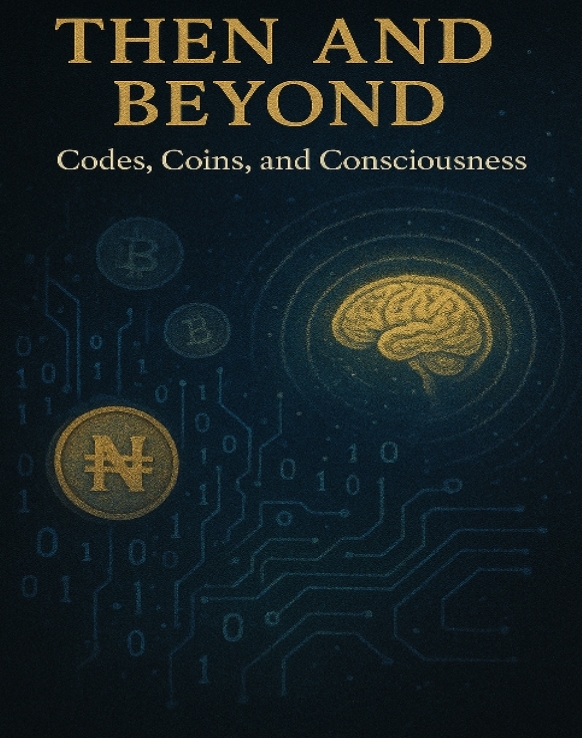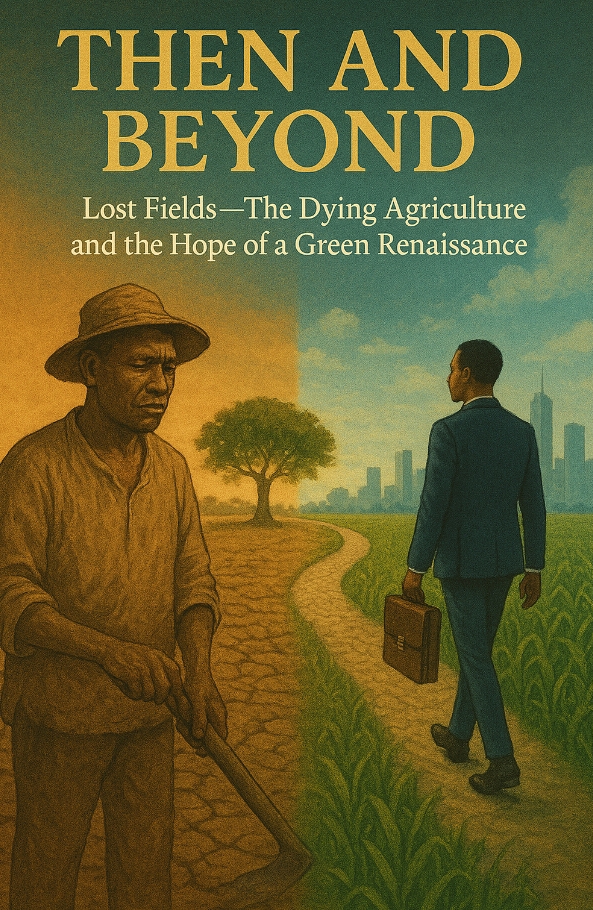Then and Beyond: “LAPO vs NEPO”: Banter or a Brutal Truth About Nigeria?

Oluseun Fatope
I first stumbled on the LAPO vs NEPO banter while scrolling through X late one night. At first, I laughed, how could I not? A meme comparing someone who divides his fish into four pieces, so there is something to keep him happy during dinner with someone who orders pizza twice in a week felt too familiar to ignore. But the more I saw it, the more I realised it wasn’t just humour; It was a mirror.
Because if you’ve lived in Nigeria long enough, you know the joke cuts deeper than the laughter. It is the kind of humour that sits in your throat, funny for a second but bitter after. “LAPO” and “NEPO” are not just words; they are the shorthand for a reality we live in every day. They are the unspoken way of saying some of us are barely surviving while others are floating above the chaos.
That, to me, is why this banter matters. It is not only a meme. It is not only social media noise. It is the young generation’s shorthand for inequality; a brutal truth wrapped in jokes.
LAPO Residents
Every slang has its heroes, or in this case, its sufferers. LAPO people are the everyday hustlers. They are the students who think twice before boarding a bike because trekking is cheaper. They are the ones who turn garri and groundnut into a gourmet meal because the price of rice has outrun their allowance. They are the ones who “manage”; manage data, manage light, manage patience, manage dreams.
On campuses like the University of Ibadan, you don’t need an identity card to know who is LAPO. The signs are written in their choice of food, shoes, and sometimes in their mood, not excluding the columnist. Of course, LAPO is not just about money. It is a state of having to struggle for the most basic things. To be LAPO is to be vulnerable, to constantly budget, to bend and bend again until you almost break. It is to look at the cost of tuition, the price of food, the cost of transportation, and feel the weight of a country that seems designed to keep you struggling.
NEPO Idols
If LAPO is the ground, NEPO is the sky. NEPO people are the rich, or at least the comfortable. They are the ones who can walk into a supermarket and shop without peeping at price tags. They are the ones who enjoy taking kẹ̀kẹ́ from ITH to Indy Hall just to dine at SBJ. They eat pizza while others drink garri. They talk of “chilling in Lagos” on a weekend while others are battling to pay faculty dues.
In short, NEPO represents privilege, not necessarily ill-gotten, but privilege nonetheless. In a country where upward mobility is more myth than reality, being a NEPO often has little to do with personal effort and much to do with family background. You didn’t choose to be LAPO or NEPO; you were born into it.
The joke is funny because it exaggerates, but it also bites because it is true.
Why Does This Banter Stick?
Why does LAPO vs NEPO resonate so strongly, especially with students? Because it reflects reality. Nigeria is not just unequal; it is a country where inequality has become part of the culture. The gap between rich and poor is no longer just numbers in World Bank reports; it is lived daily in our classrooms, our hostels, our cafeterias.
The reason students latch onto it is that campuses are the perfect microcosm of this divide. In one room, you may have a student who depends on ₦10,000 pocket money to survive the month. In the next room, another student casually buys sneakers worth ₦35,000. Same school, same lectures, but different planets.
Banter is the only way to cope with this awkward coexistence. Instead of open envy or hostility, Nigerians repackage the divide into jokes. We laugh, but the laughter is uneasy.
Lapo, Nepo, And The Nigerian Reality
At the heart of this classification lies a deeper question: what does it say about Nigeria as a whole? It says that the middle ground is disappearing. There was a time when people could live modestly, not rich, not poor, but “managing.” That middle class is shrinking every day. Now, you’re either scraping or flexing. You are either counting nothing or counting dollars.
This is why the LAPO vs NEPO meme is not innocent. It captures what economists call the polarisation of society. In plain English, it means the rich are getting richer, the poor are getting poorer, and the middle class is vanishing. The IMF may publish papers about inequality, but Nigerian students have already summarised it in two words: LAPO and NEPO.
Then And Beyond: What The Future Holds
Then: In the past, Nigerians survived with humour, but there was still some faith that tomorrow could be better. The child of a farmer could become a doctor; the daughter of a roadside trader could become a lawyer. Hardship was there, but hope was also there.
Now: The LAPO vs NEPO joke is a symptom of eroded hope, in my own submission. It reflects a generation that does not see itself crossing the divide. People no longer laugh because they believe they’ll rise above poverty someday; they laugh because it is easier than crying.
Beyond: The real danger is if nothing changes. If government policies continue to widen inequality, if universities keep raising tuition, if the economy keeps crushing the poor, then the LAPO vs NEPO divide may harden into stark reality. Tomorrow’s Nigeria may no longer have jokes about poverty; it may have open hostility between the poor majority and the rich minority.
But there is also another possibility. The fact that young people are naming and mocking inequality shows that they are not blind to it. This awareness could be the spark for a generation that refuses to accept such divides. Perhaps in the future, instead of LAPO and NEPO, we will coin new terms for solidarity, for collective progress, for bridging the gap.
In the end, LAPO vs NEPO is more than slang. It is a mirror, sometimes cracked, sometimes funny, but always revealing. It tells us who we are and where we are heading.
If Nigeria must have a brighter tomorrow, the LAPO vs NEPO divide must not be allowed to harden into destiny. Banter may make the wound bearable, but only real social and economic reform can heal it.Until then, when next you see the memes, laugh, but also remember: in every joke there is a truth, and in this one, the truth is brutal.








